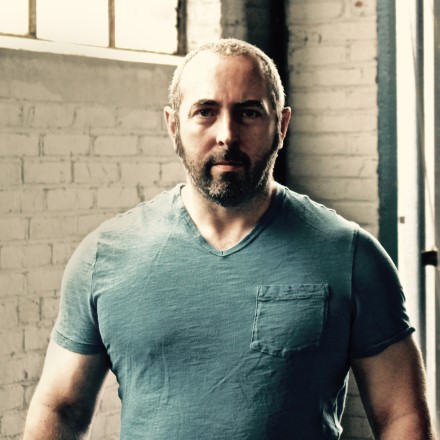On July 4th, in a train carriage, ten people watched as a passenger stabbed and kicked another to death (there were apparently 30-40 stab wounds on the victim), without anyone intervening. It would be east to judge these bystanders, for doing just that, standing by, however when we start to break down these situations, we should not be so surprised that nobody intervened, or be so sure that we would if placed in a similar situation.
Firstly, it is worth painting a very clear, and vivid picture of what these bystanders experienced; violence on a level that they had never experienced before, something that the media, can never actually portray, because it is beyond most people’s imagination and comprehension. When an attacker starts to stab someone, they are not looking to simply injure or intimidate them, they are looking to finish them - this is a big difference between stabbing and slashing actions/behaviors. Someone who is repeatedly stabbing somebody 30 to 40 times, is in an emotional state that most people have never witnessed before or believed possible for someone to adopt. Most of us have not witnessed and aggressive, frenzied, emotional assault where it is clear one person is intent on killing another. None of those on the train were emotionally or mentally prepared to accept what they were witnessing.
Secondly, their individual survival was not tied to that of the passenger being attacked. Our survival instinct is a strange thing; it is exists to ensure the survival of the species, not the individual. When a herd of Elk are attacked by a pack of wolves, it is every animal for itself i.e. you don’t see all the elk turn on the wolves and force them back through force and weight of numbers, instead they run, and one gets singled out and killed. I am not trying to make a direct parallel, with the actions of a herd of elk and the passengers on the train, but rather to suggest that from a survival perspective, every individual acting on their own, and not intervening was the most appropriate survival strategy. If the assailant had kept turning on members of the group, and it became inevitable that he would have killed them all, then those left would probably have realized that their best survival strategy would be to engage with their attacker. However until, an individual realizes that their only survival strategy is to engage they will usually sit tight and do nothing e.g. the passengers on Flight 93 only engaged with their hijackers, once they had heard what had happened to the two other planes on 9/11, not before.
Thirdly, in high stress situations, people get caught in a denial, deliberation and decision loop, initially denying that what they’re seeing is actually happening, or is as bad as it is e.g. maybe the knife isn’t actually going deep enough to cause harm, or that once the victim can receive medical help everything will be okay etc. Once reality hits - and 10-15 frenzied stabs could have occurred in this period – a person goes into a deliberation loop, trying to work out their best course of action (for their own survival), which may involve contemplating trying to intervene, however they will start to weigh up this option against all their others, doing a certain level of cost-benefit analysis e.g. is trying to enlist help a better option than trying to intervene, is directly intervening better than staying out etc. if someone is with friends/family members these individuals will affect a person’s ability to make an effective decision. Once a decision is reached, the person needs to action it. Let’s say that one of the individuals on the train, did decide that they wanted to act and intervene. If this was the case they would be subject to some very strong mental/emotional reactions to this decision.
In 2013, Amy Lord, a 24 year old South Boston resident, was abducted and taken to a number of ATMs to make a series of withdraws, before being taken to a secluded area, and then stabbed and burnt to death. What surprised many people that Amy was allowed to get out of her abductors car to go to the ATMs, but never once tried to escape, when she seemingly had the ability to do so. There could be a number of reasons why she never took her chance to run, but I’ll explain one possible one, that will also demonstrate why a person who is not being assaulted will find it very difficult to intervene in an assault. One of the things we do know that happened to Amy Lord, was that she took a vicious beating in her apartment before she was taken to withdraw money. As she was sitting in her assailant’s car, she was not experiencing pain, whilst she was walking to the ATM she was not experiencing pain. Our natural human condition tells us not to do anything to alter this state, even if we know later on, we will experience further pain. One thing Amy Lord knew was that if she didn’t comply there was a good chance she’d experience pain; as long as she was complying she wasn’t – even if eventually she would. This is something that the bystander on the train, would have to overcome; whilst they were not intervening they weren’t experiencing pain.
As can be seen, there are a lot of understandable reasons why none of the other ten passengers intervened, and before we pat ourselves on the back and say we’d behave differently, let’s acknowledge that we’ve probably seen minor or less devastating acts of aggression and violence involving others where we haven’t intervened, despite feeling that we perhaps should have. We should not simply assume that because we are witnessing the murder of another individual, that we would easily shake off all of the objections and excuses we made when we talked ourselves out of intervening in these more minor disputes. However let’s say that we have decided that an incident we’re observing, of a similar severity of that in the train carriage, is one that we feel compelled to do something about.
Sheer weight of numbers does help, and can decide a lot. If there are others you can recruit to assist you then do so, however be aware that this might not be an option. If the attacker were to hear you as you attempted to organize assistance, you may become the target of violence, before you’ve recruited anyone to your cause. Also be aware that nobody else may want to get involved – for all the reasons listed above. You should also be aware that whilst others may assist you, it will be you who is expected to make the initial assault on them. If there is a group of you, your job/role should be to try and control the knife arm, and restrict the movement of the knife, whilst another tries to make the disarm. This may involve bear hugging your attacker, clinging on to their arm etc. as someone else tries to pull the knife from their hand. You should then attempt to get them to ground face first, and pin them there. In all of this accept that somebody, maybe all/both of you will get cut.
If you are on your own, your best position is to get behind them, and either try to control the arm in order to disarm them, or control the knife whilst they hold it, and use it against them. Understand as well that if you are on a moving train, a lot of your skills will be compromised by the unstable platform you are on. Another solution, is to try and take the attacker out in one move e.g. come up behind him and pull backwards on his head to slam him into the ground – people will often let go of what they are holding as they try to break their fall. For every solution there is, there are a number of problems, and the best way to mitigate these, is to be aggressive, decisive and not hold back anything, because you are now in a fight for your life.
We may want to do what we believe is right, and we may expect others to do what is right e.g. intervene on the behalf of somebody being killed, but the truth of it is, that we are not mentally or emotionally motivated to do so, unless our survival, or someone’s we care about, is at risk. If we want to live in a society where people intervene on our behalf we must take active steps to build it, and take responsibility for actions and behaviors that detract from this goal e.g. next time you cut somebody off in traffic, jump a queue, put your needs above those of somebody else, asks yourself if you really could expect that person to come to your assistance if you needed it. If we want to build a society, which takes a collective approach to responsibility, we need to buy into and invest in that.
Share:

Gershon Ben Keren
2.8K FollowersGershon Ben Keren, is a criminologist, security consultant and Krav Maga Instructor (5th Degree Black Belt) who completed his instructor training in Israel. He has written three books on Krav Maga and was a 2010 inductee into the Museum of Israeli Martial Arts.
Click here to learn more.
